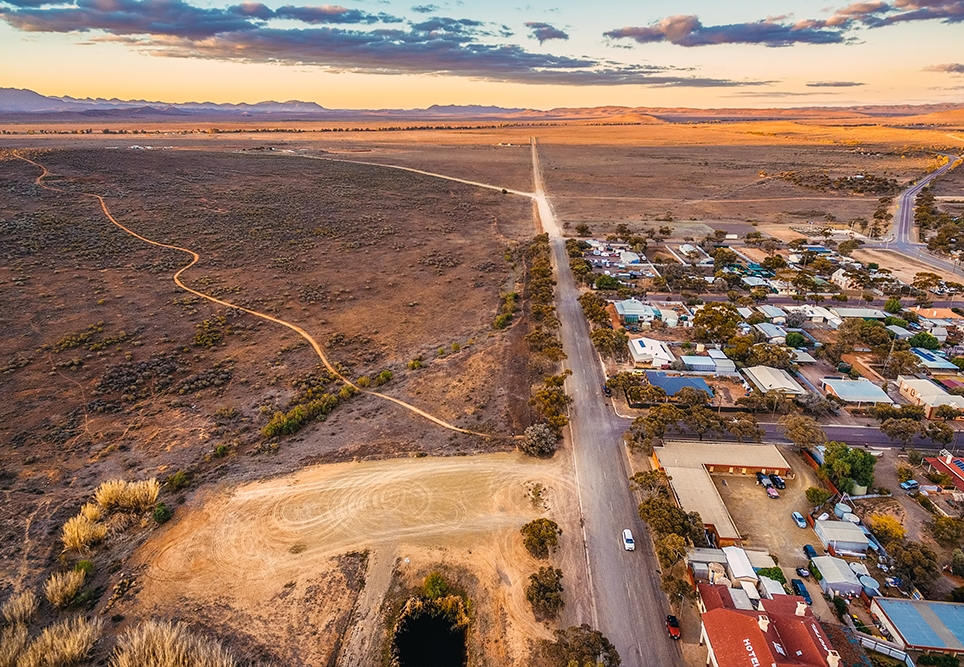This site may not work properly using older versions of Edge and Internet Explorer. You should upgrade your browser to the latest Chrome, Firefox, Edge, Safari, or any other modern browser of your choice. Click here for more information.
Your Stories
This is where we tell your stories, cover topical issues and promote meaningful initiatives.
CRANAplus launches its inaugural Remote Area Nursing Pathway Program
This July, CRANAplus launched its inaugural Remote Area Nursing Pathway Program. The nine-month program is supporting four CRANAplus Members to build clinical skills, resilience, and cultural safety in preparation for their transition to remote practice.
Melanie Avion, Professional Officer at CRANAplus, remembers when she first started working as a remote area nurse.
“I was oriented to the air bags, the bags containing medical supplies to put in a plane when going out to an accident,” she says.
“I was told, ‘Here’s the chest tubes. Just put it between two ribs.’ There was no flying doctor where we were. The nurse would get in with a pilot in a tiny, unpressurised plane with the seats taken out.”
“Clearly, I was underprepared.”
Motivated by her experiences as a young nurse, Melanie is committed to ensuring nurses heading remote are prepared for what will be required of them.
“CRANAplus launched this initiative because of our knowledge as the peak organisation representing remote area nurses.”
“We’ve been RANs. We know what they’re going through, and we know what works,” Melanie says.
“We know they need emergency, primary health care, and professional skills, and knowledge on delivering care in a culturally safe manner; and also, it’s hard to drive the journey yourself and find a defined pathway from metro to rural to remote.
“So, we decided to build a holistic, wrap- around program encompassing education, skills, cultural safety, professional development, and career planning.”
Why extensive preparation is necessary for remote practice
“Compared to acute nursing, the role of a remote area nurse is a lot more autonomous, and your scope of practice is broader,” Melanie says.
“You’re not just in emergency, but chronic health problems, from maternity and birth, all the way through to palliative care.
“It’s like extreme nursing… When something happens in a tertiary emergency, there are more people standing there, problem solving and making it work.
“When you put that nurse in a place where there’s only one other nurse or maybe an Aboriginal Health Worker or a doctor next Wednesday, that’s extreme.
“If you want to go remote, we want you to be ready for it, provide excellent care, and stay.”
“If new-to-remote nurses are prepared and ready to go, and they prioritise their own wellbeing, then we can create a more sustainable workforce.
“Reduced turnover means a higher quality of care because relationships with community and continuity of care are the most important way to support health care.
“This program is about getting people out there, keeping them out there, and making sure they’re safe and happy so they want to be there.
“At the end of this program, they’re not a fully-fledged, packaged remote nurse, but they’re on the path to becoming one.”
Pathway support for future RANs
In its first year, the Remote Area Nursing Pathway Program is being undertaken by four CRANAplus Members who successfully applied for the associated Remote Area Nursing Pathway Program Grant.
This grant, supported by the Nurses Memorial Foundation of South Australia, covered all fees for the included courses and offered a $500 bursary for each to assist with travel and accommodation costs.
CRANAplus CEO, Katherine Isbister, reflects: “The high number of applications has high-lighted the gap in current pathway support and CRANAplus is exploring options for running the program more broadly in the future.”
What’s included in the program?
- CRANAplus Remote Emergency Care course.
- CRANAplus Maternity Emergency Care course.
- The CRANAplus Online Clinical Assessment Suite.
- A range of webinars featuring guest speakers, designed to support your professional development and preparedness for expanding your scope
of practice. - Resilience workshops and professional reflection activities.
- Cultural safety professional development.
For more information see Remote Area Nursing Pathway Program.
